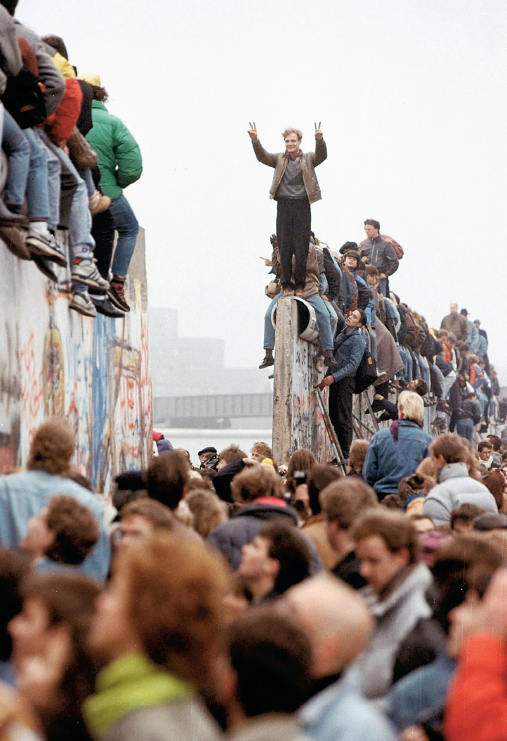How did decolonization and the end of the Cold War change Europe?

Fall of the Berlin WallA man stands atop the partially destroyed Berlin Wall flashing the V for victory sign as he and thousands of other Berliners celebrate the opening of the Berlin Wall in November 1989. Within a year the wall was torn down, communism collapsed, and the Cold War ended. (Lionel Cironneau/AP Photo)
IIN THE LATE 1960S AND EARLY 1970S the United States and the Soviet Union pursued a relaxation of Cold War tensions that became known as détente (day-TAHNT). Détente stalled when Brezhnev’s Soviet Union invaded Afghanistan to save an unpopular Marxist regime. President Jimmy Carter reacted with alarm at the spread of Soviet influence.
Carter’s successor, Ronald Reagan (U.S. pres. 1981–1989), further re-ignited the Cold War by calling the Soviet Union the “evil empire” and deploying nuclear arms in western Europe. Reagan found conservative allies in British prime minister Margaret Thatcher and German chancellor Helmut Kohl. But as Reagan, Thatcher, and Kohl rekindled the Cold War, the Soviet Union underwent a cycle of reform that culminated in the release of Soviet control over eastern Europe and the dismantling of the Soviet Union.
